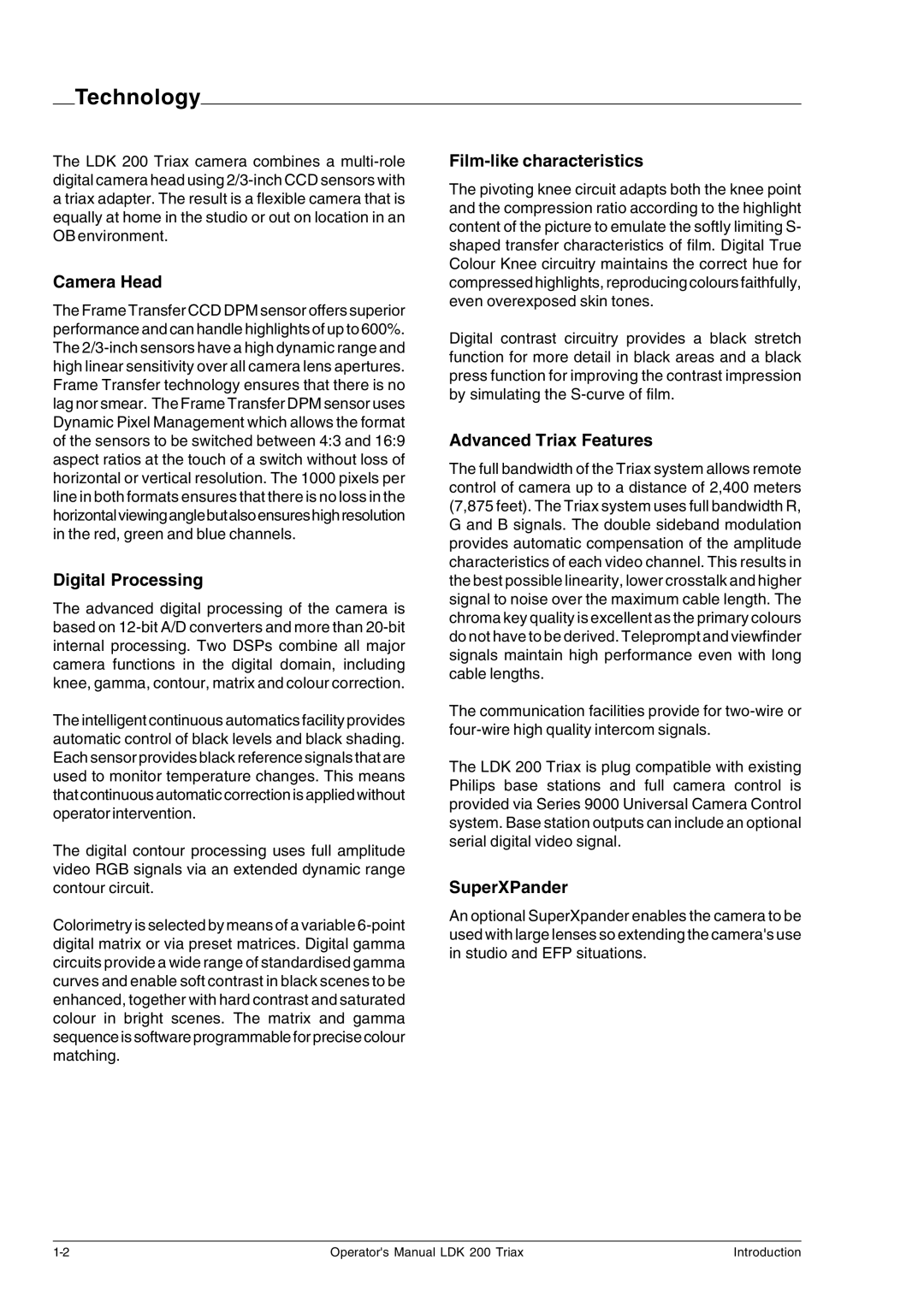
Technology
The LDK 200 Triax camera combines a
Camera Head
The Frame Transfer CCD DPM sensor offers superior performance and can handle highlights of up to 600%. The
Digital Processing
The advanced digital processing of the camera is based on
The intelligent continuous automatics facility provides automatic control of black levels and black shading. Each sensor provides black reference signals that are used to monitor temperature changes. This means that continuous automatic correction is applied without operator intervention.
The digital contour processing uses full amplitude video RGB signals via an extended dynamic range contour circuit.
Colorimetry is selected by means of a variable
Film-like characteristics
The pivoting knee circuit adapts both the knee point and the compression ratio according to the highlight content of the picture to emulate the softly limiting S- shaped transfer characteristics of film. Digital True Colour Knee circuitry maintains the correct hue for compressed highlights, reproducing colours faithfully, even overexposed skin tones.
Digital contrast circuitry provides a black stretch function for more detail in black areas and a black press function for improving the contrast impression by simulating the
Advanced Triax Features
The full bandwidth of the Triax system allows remote control of camera up to a distance of 2,400 meters (7,875 feet). The Triax system uses full bandwidth R, G and B signals. The double sideband modulation provides automatic compensation of the amplitude characteristics of each video channel. This results in the best possible linearity, lower crosstalk and higher signal to noise over the maximum cable length. The chroma key quality is excellent as the primary colours do not have to be derived. Teleprompt and viewfinder signals maintain high performance even with long cable lengths.
The communication facilities provide for
The LDK 200 Triax is plug compatible with existing Philips base stations and full camera control is provided via Series 9000 Universal Camera Control system. Base station outputs can include an optional serial digital video signal.
SuperXPander
An optional SuperXpander enables the camera to be used with large lenses so extending the camera's use in studio and EFP situations.
Operator's Manual LDK 200 Triax | Introduction |
